Find Help
More Items From Ergsy search
-
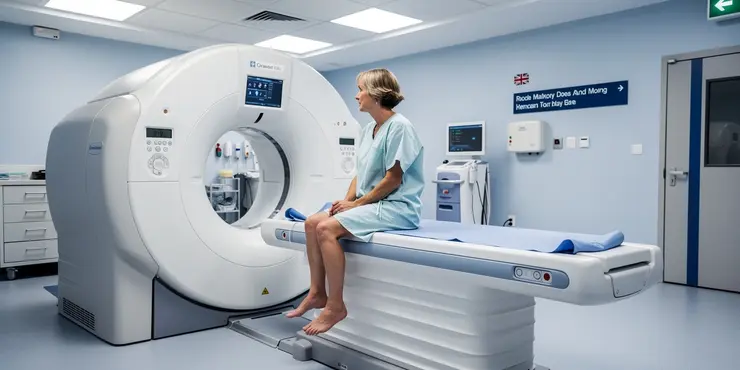
Radiotherapy CT scanner
Relevance: 100%
-
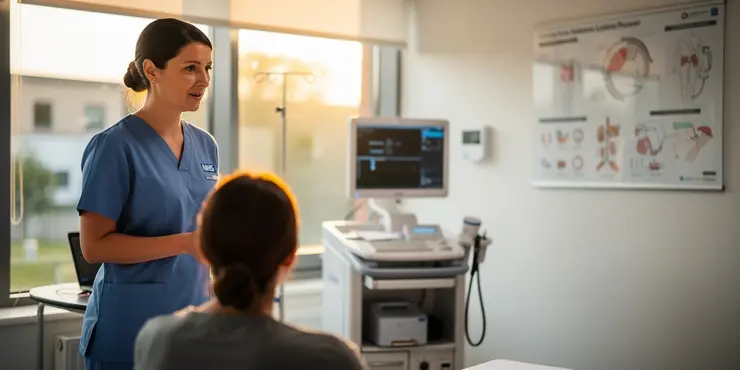
Radiotherapy Services at University Hospital
Relevance: 45%
-
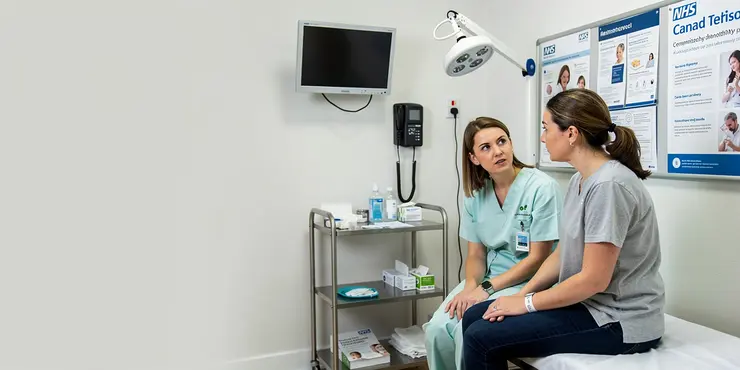
What is Radiotherapy, and its use in treatment for cancers?
Relevance: 44%
-
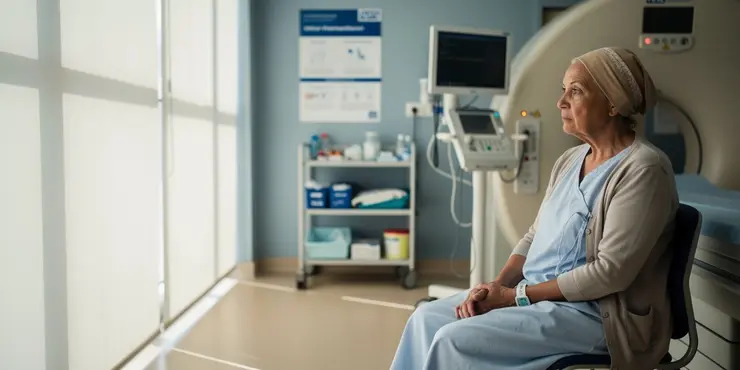
Having radiotherapy for breast cancer - 3 Videos
Relevance: 43%
-
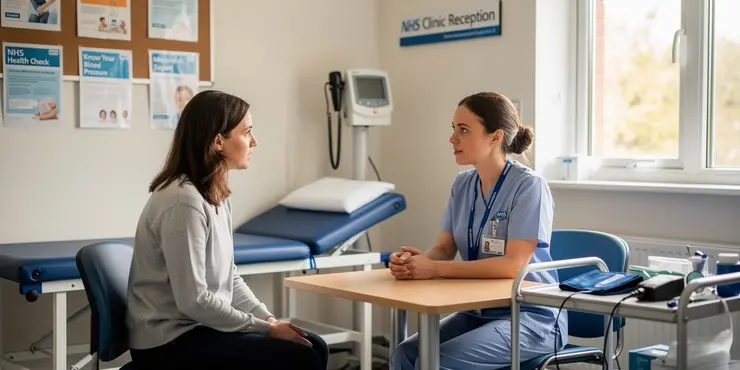
A Radiotherapy appointment in east and North Hertfordshire
Relevance: 42%
-
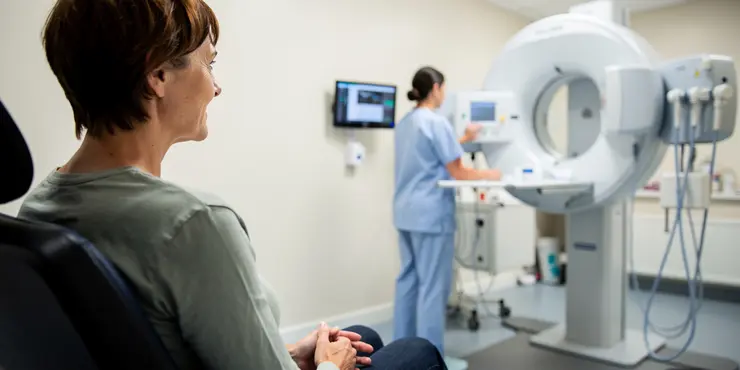
Radiotherapy to the Head and Neck: A Guide for patients and their carers
Relevance: 41%
-
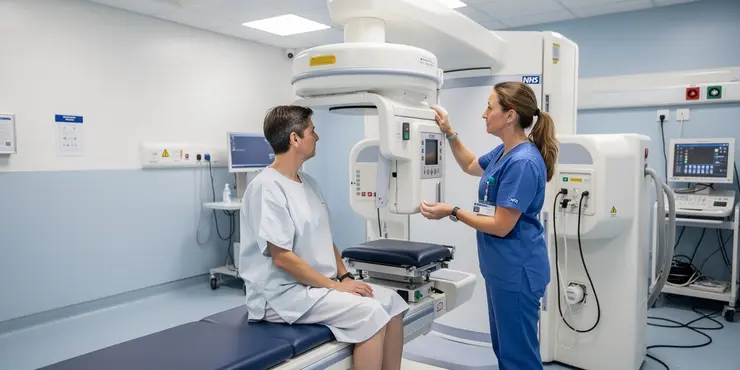
Cancer treatment: what happens during radiotherapy? | NHS
Relevance: 41%
-
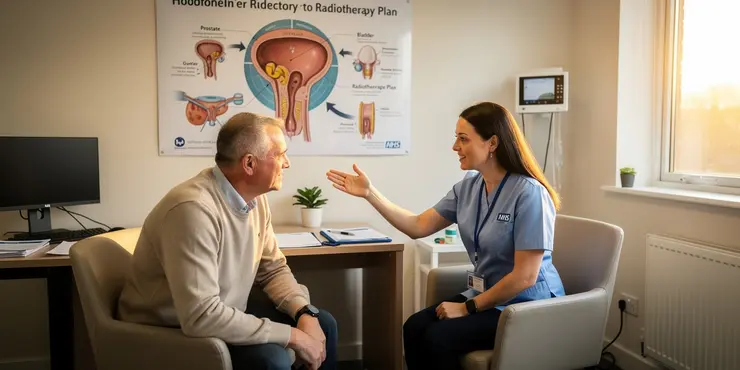
What is it like having Prostate Radiotherapy treatment?
Relevance: 40%
-
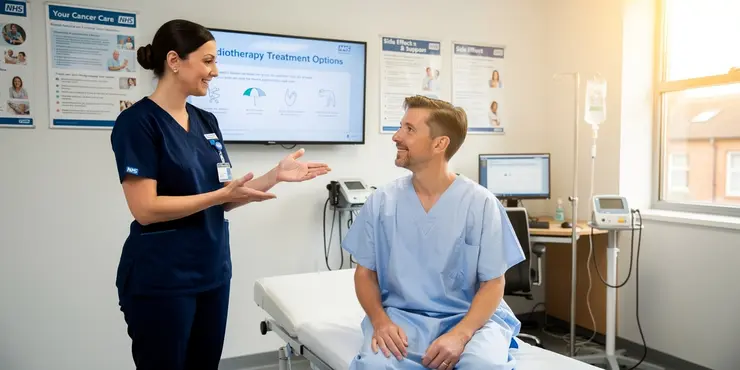
Royal Berkshire NHS Foundation Trust: Radiotherapy for prostate cancer
Relevance: 40%
-
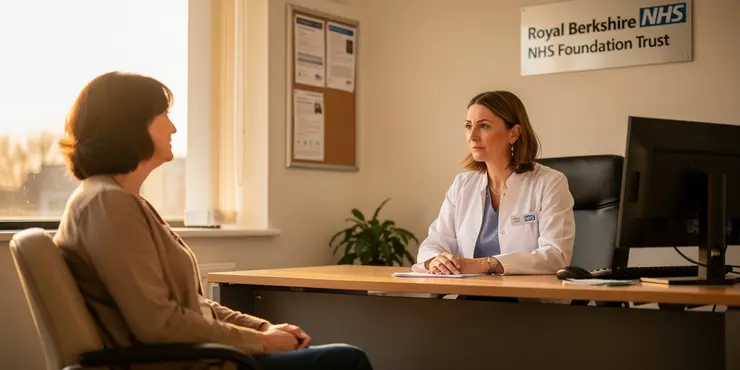
Royal Berkshire NHS Foundation Trust: Radiotherapy for head and neck cancers
Relevance: 38%
-

MRI Scanner walkthrough - what to expect at your appointment
Relevance: 38%
-
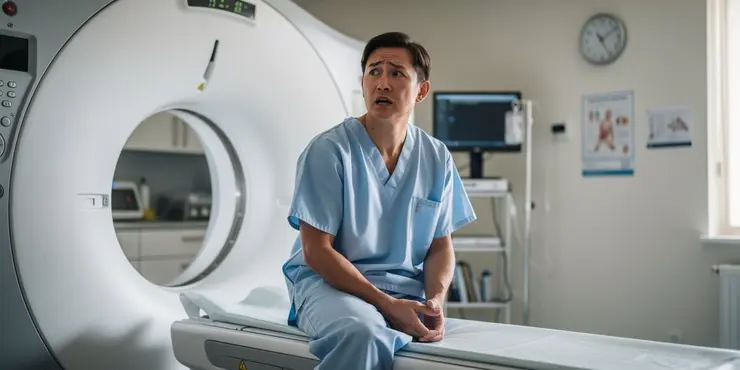
Going for an MRI Scan
Relevance: 14%
-
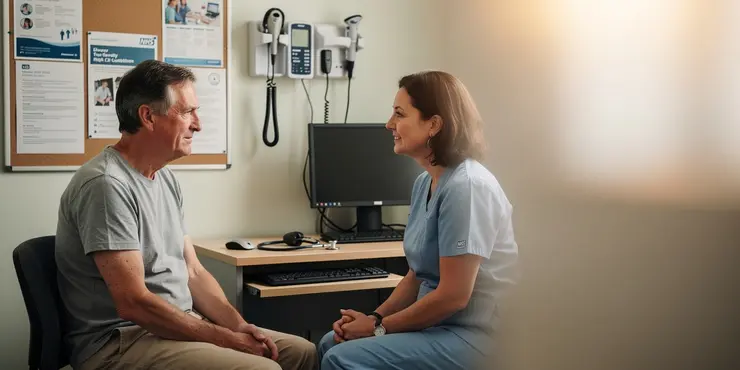
Having a CT Angiogram
Relevance: 14%
-
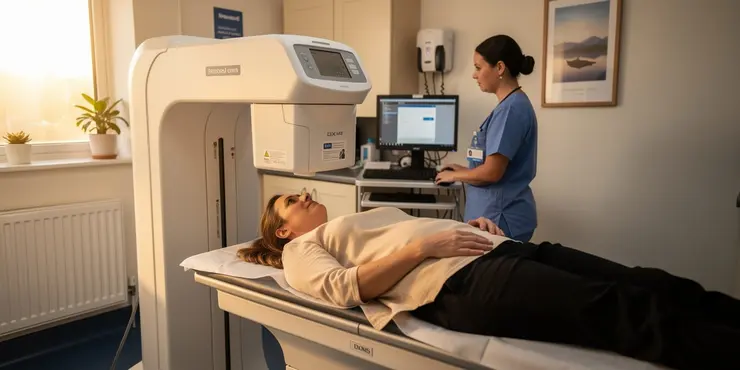
What to expect of a DXA Scan
Relevance: 13%
-
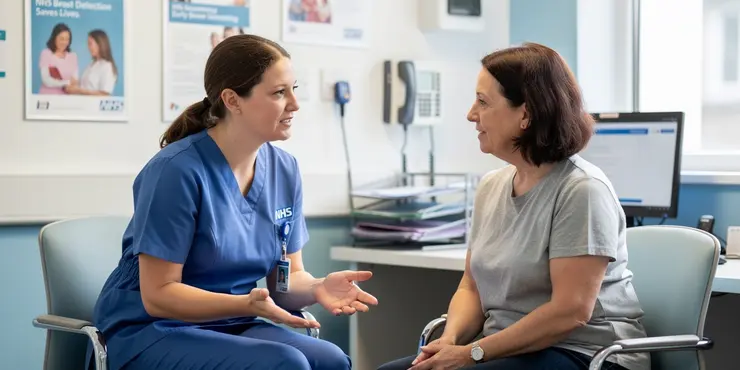
Breast cancer: testing and treatment | NHS
Relevance: 12%
-
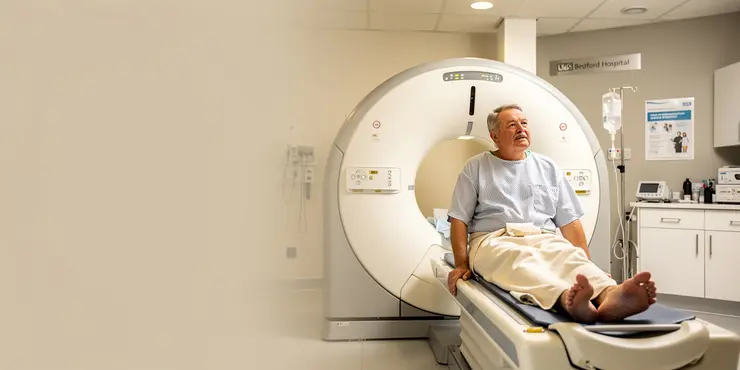
Having a CT scan in Hospital - What's it like having a CT scan at Bedford Hospital?
Relevance: 11%
-
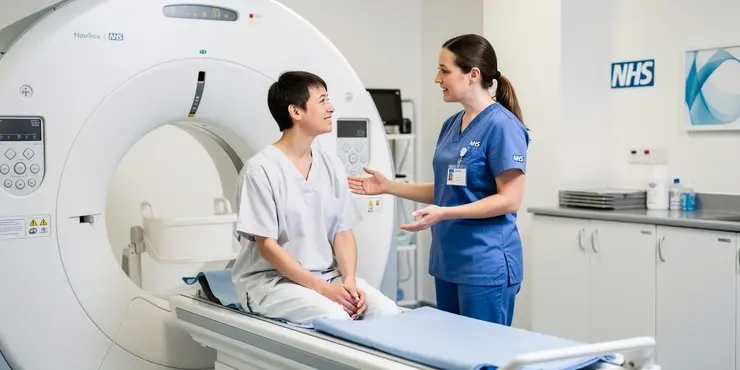
Going For a CT Scan
Relevance: 10%
-
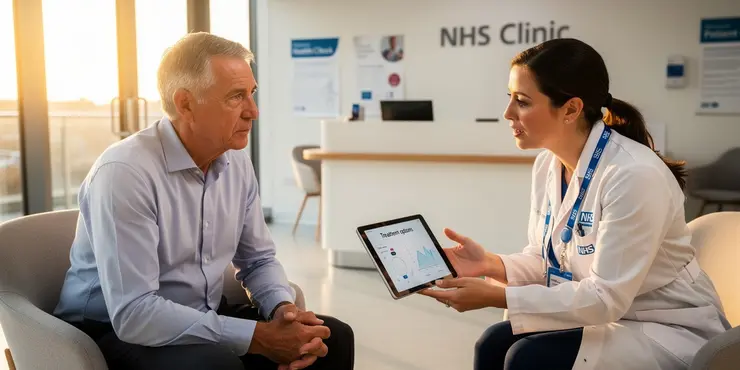
How is prostate cancer treated?
Relevance: 9%
-
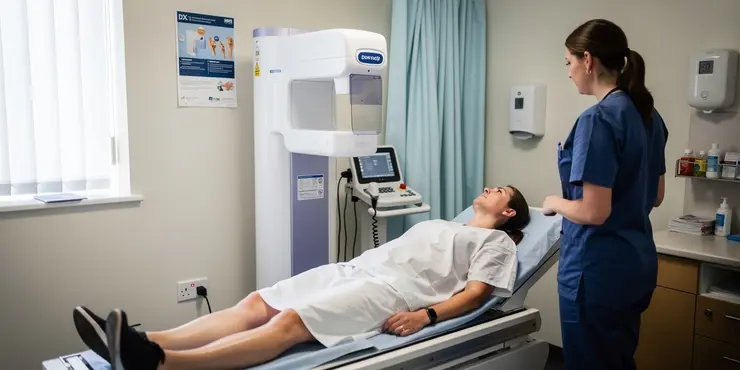
What to expect of a DXA Scan
Relevance: 9%
-
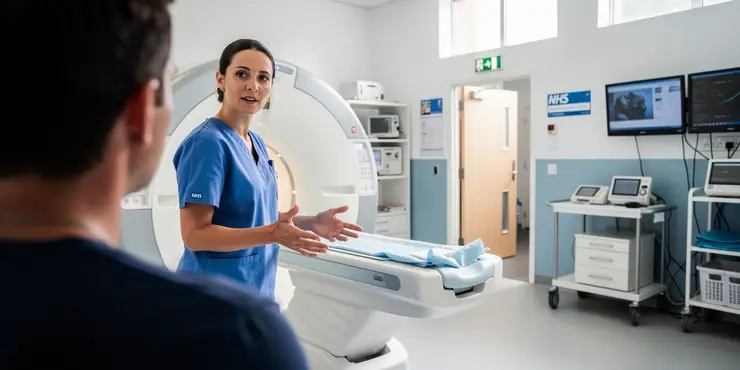
How Does an MRI Scan Work?
Relevance: 9%
-

Your PET/CT scan at University College Hospital
Relevance: 9%
-
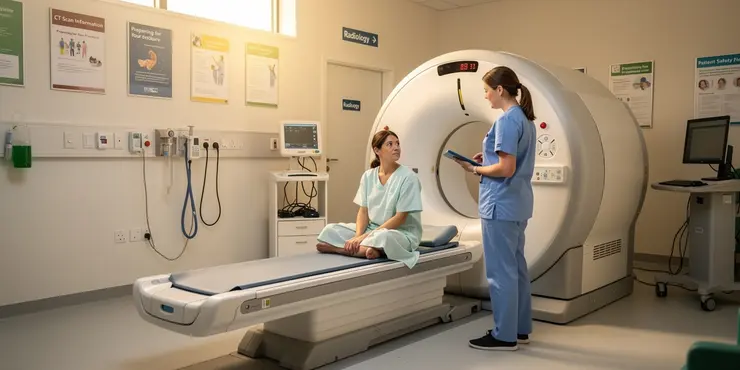
What is a CT colonography?
Relevance: 9%
-
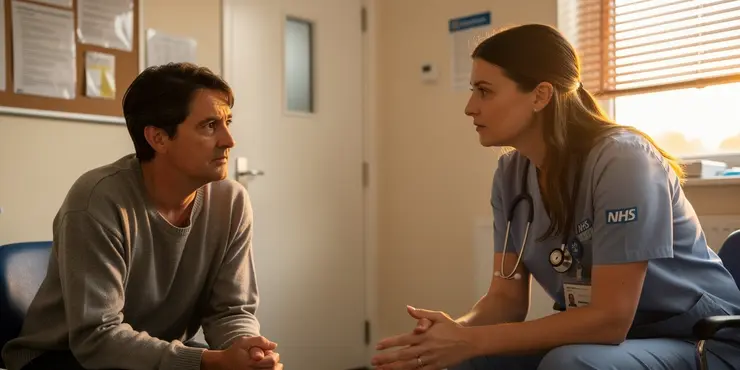
What are the common treatment options for prostate cancer?
Relevance: 9%
-
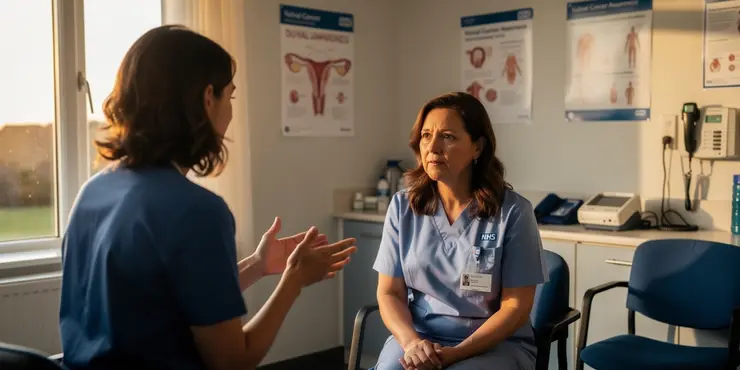
Vulval Cancer
Relevance: 9%
-
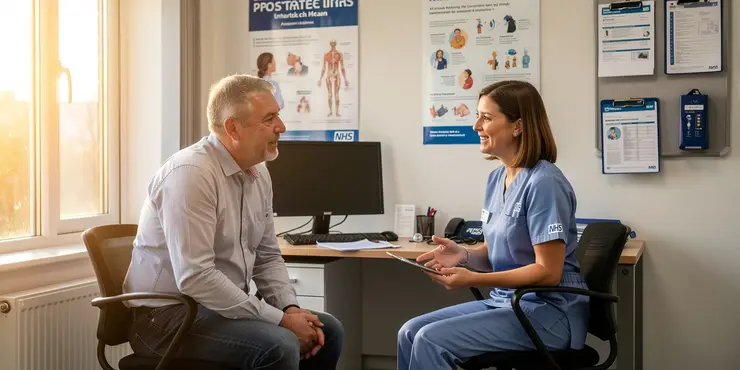
Can Abiraterone be used for early-stage prostate cancer?
Relevance: 9%
-
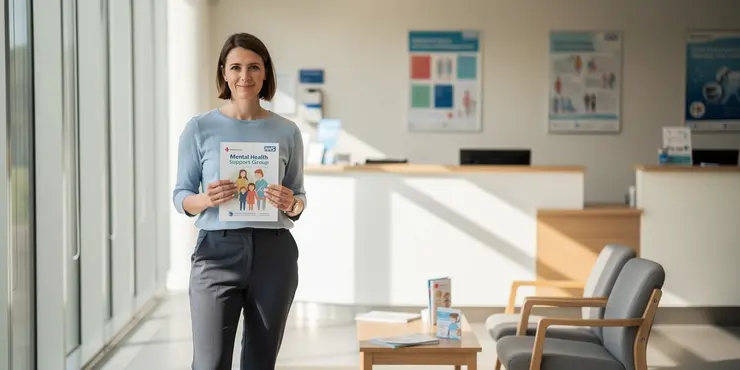
Emma's story: My brain tumour story
Relevance: 9%
-
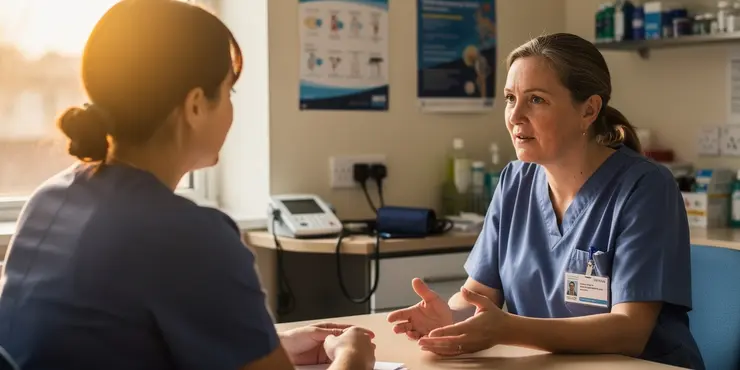
What are the side effects of bowel cancer treatment?
Relevance: 8%
-
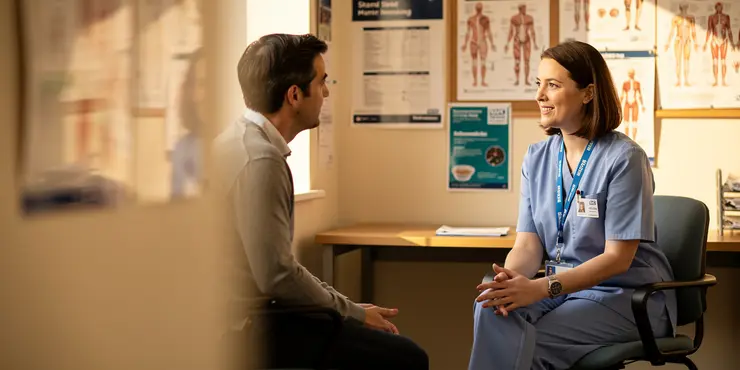
What treatment options are available for bowel cancer?
Relevance: 8%
-
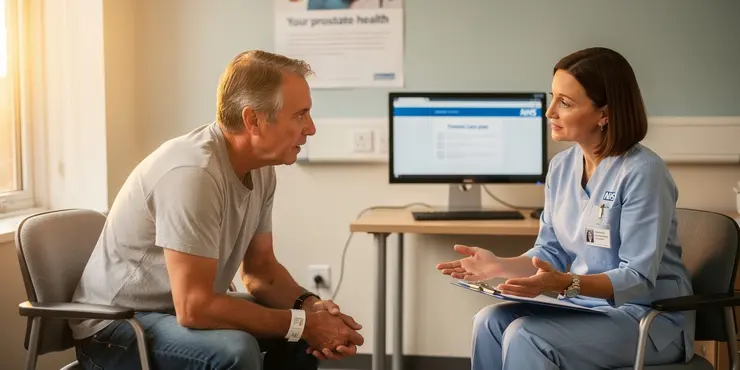
Treating prostate cancer
Relevance: 8%
-
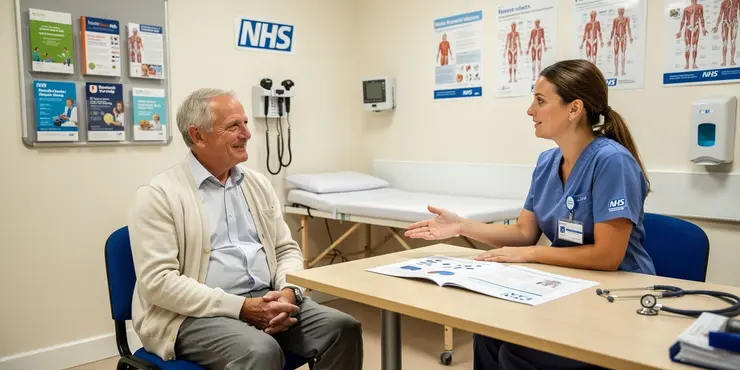
How is advanced prostate cancer treated?
Relevance: 8%
-
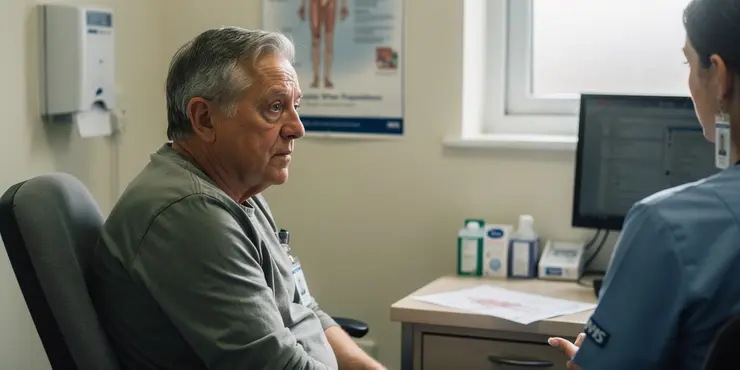
Hormone Therapy for prostate cancer
Relevance: 8%
-
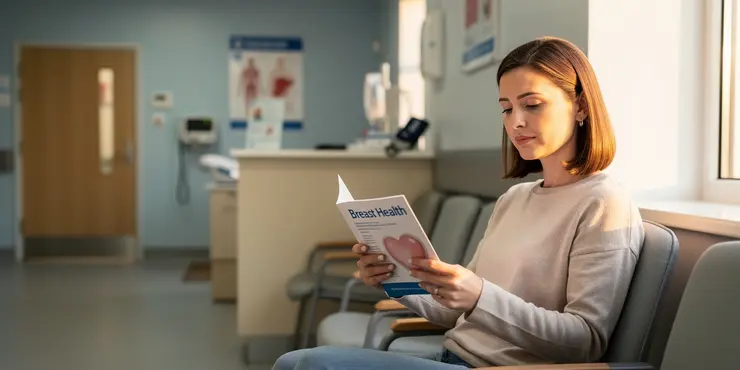
I've found a lump in my breast - What happens next? The breast diagnostic clinic
Relevance: 8%
-

What types of police records are available for me to see?
Relevance: 8%
-
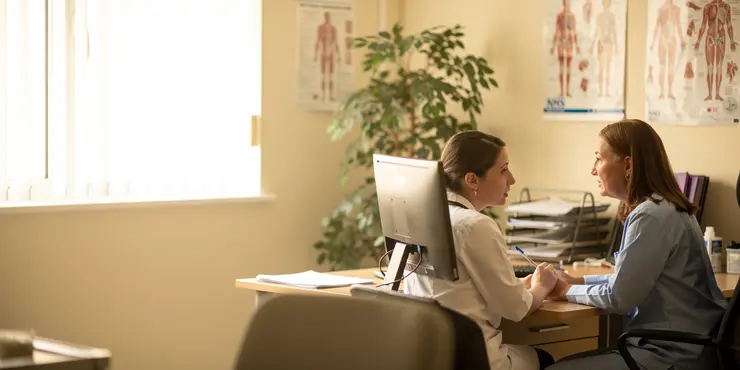
Mesothelioma
Relevance: 7%
-
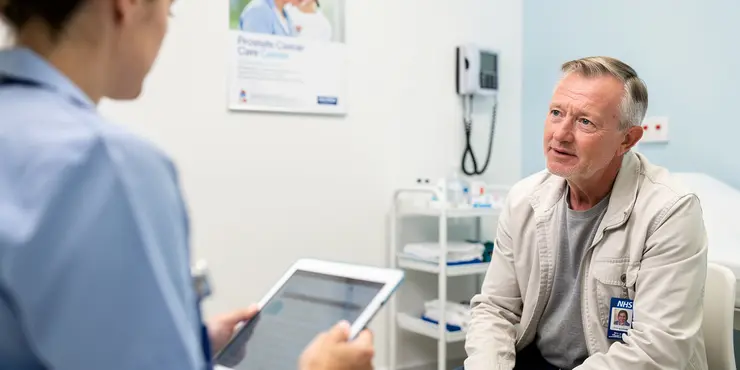
What is active surveillance in prostate cancer treatment?
Relevance: 7%
-
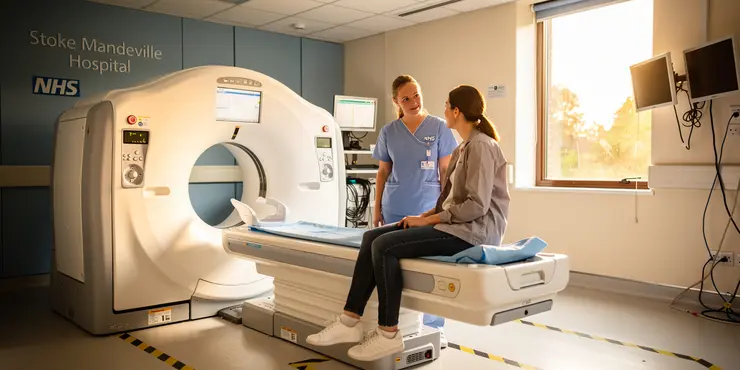
Having a CT Scan at Stoke Mandeville Hospital - Buckinghamshire Healthcare NHS Trust
Relevance: 7%
-
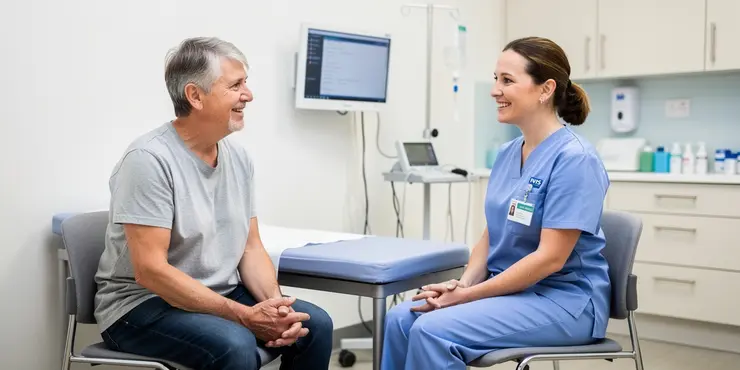
The FDG PET Scan: What to expect
Relevance: 7%
-
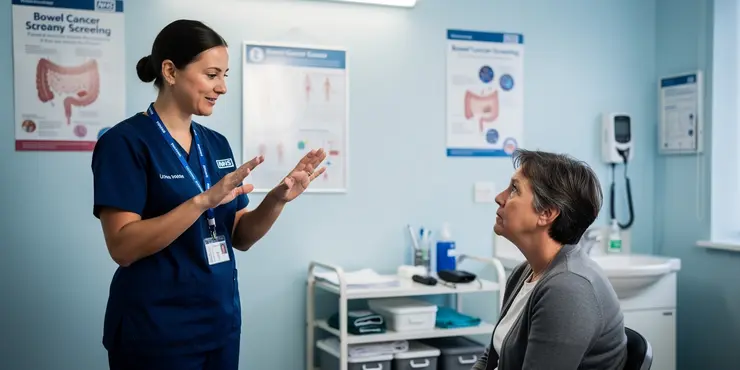
Learn about bowel cancer (British Sign Language version)
Relevance: 7%
-

How should I secure my mobile phone?
Relevance: 6%
-
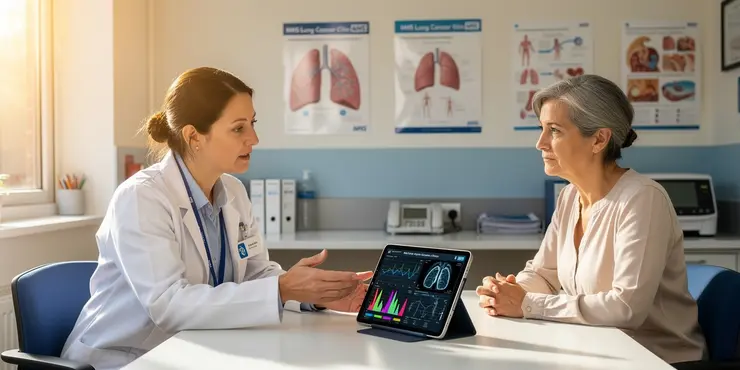
How can AI improve patient outcomes in lung cancer?
Relevance: 6%
Radiotherapy CT Scanner
Introduction to Radiotherapy CT Scanner
Radiotherapy CT scanners play an essential role in the treatment of cancer in the United Kingdom by allowing precise imaging needed for effective radiotherapy treatment planning. These advanced imaging devices provide detailed cross-sectional images of the body, which are critical for accurately targeting tumours while minimising exposure to healthy tissues.
Working Principle
A radiotherapy CT scanner, or Computed Tomography scanner, uses X-rays to create detailed images of the internal structures of the body. As the scanner rotates around the patient, it takes multiple two-dimensional X-ray images from different angles. These images are then combined using computer algorithms to construct a comprehensive 3D representation of the patient's anatomy. This 3D model is essential for planning the precise delivery of radiation beams.
Importance in Cancer Treatment
In the UK, radiotherapy is a crucial treatment modality for many cancer patients. The use of a radiotherapy CT scanner ensures that oncologists can accurately identify the size, shape, and location of tumours. This precision aids in the development of highly tailored treatment plans that focus radiation doses directly on cancer cells while sparing as much healthy tissue as possible, thereby reducing side effects and improving patient outcomes.
Benefits for Patients
The main advantage for patients undergoing radiotherapy planning with a CT scanner is the improved accuracy of treatment. Precise imaging allows for better tumour targeting, which can lead to higher treatment success rates. Additionally, by focusing radiation more accurately, patients experience fewer side effects, thereby maintaining a better quality of life during their treatment journey. The high level of detail provided by these scans also allows for ongoing monitoring and adjustments to the treatment plan if necessary.
Conclusion
Radiotherapy CT scanners are a cornerstone in modern cancer treatment in the United Kingdom. Their ability to provide detailed and precise images allows oncologists to develop effective and targeted radiotherapy plans, ultimately leading to better patient outcomes. As technology advances, the role of these scanners continues to grow, cementing their importance in the ongoing fight against cancer.
Radiotherapy CT Scanner
What is a Radiotherapy CT Scanner?
A Radiotherapy CT Scanner is a special machine. It helps doctors in the UK treat cancer. The scanner takes clear pictures inside the body. These pictures help doctors target cancer very precisely. It makes sure healthy body parts get less exposure.
How It Works
This scanner uses X-rays to see inside the body. It moves around the patient to take lots of pictures. All these pictures are combined by a computer. The computer makes a 3D model of the inside of the body. This helps doctors aim the radiation exactly at the cancer.
Why It Is Important for Cancer Treatment
In the UK, many people with cancer get radiotherapy, which is a type of treatment. The Radiotherapy CT Scanner shows doctors the exact size and place of the cancer. This means treatments can be very precise. The radiation can be aimed at the cancer, leaving healthy parts safer. This makes side effects less likely and helps patients feel better.
Benefits for Patients
Patients who use the CT Scanner for radiotherapy have better treatment. The scanner helps aim the treatment more accurately. This makes the treatment work better. Patients feel fewer bad side effects, so they feel better during treatment. Doctors can also keep checking the treatment plan and change it if needed.
In Summary
Radiotherapy CT Scanners are very important in treating cancer in the UK. They give clear pictures that help doctors make a good plan for treatment. As technology gets better, these scanners will keep being very important in helping people with cancer.
Frequently Asked Questions
What is a Radiotherapy CT scanner?
A Radiotherapy CT scanner is a type of imaging device specifically used to plan radiation treatment for cancer patients. It helps in defining the exact location, shape, and size of the tumour.
Why is a CT scan needed before radiotherapy?
A CT scan provides detailed images of the tumour and surrounding tissues, which helps doctors plan the precise delivery of radiation to maximize effectiveness and minimize damage to healthy tissue.
How long does a Radiotherapy CT scan take?
The entire process typically takes about 30 to 45 minutes, which includes the time for positioning the patient and taking the necessary images.
Do I need to prepare for a Radiotherapy CT scan?
Yes, you may be asked to follow specific instructions, such as fasting for a certain period or having a full bladder, depending on the area being scanned.
Will I need to stay still during the scan?
Yes, it is important to stay as still as possible to ensure clear and accurate images. Immobilization devices may be used to help you maintain the correct position.
Is a Radiotherapy CT scan painful?
No, the scan itself is painless. However, you may feel some discomfort from staying still or holding a particular position during the scan.
Can I resume normal activities after the scan?
Yes, you can generally resume most normal activities immediately after the scan. However, if you were given a contrast agent, you might be advised to drink plenty of fluids.
Are there any side effects from a Radiotherapy CT scan?
Side effects are rare but may include a mild allergic reaction to the contrast material. Most side effects are temporary and resolve quickly.
Will I receive radiation during the CT scan?
Yes, CT scans use X-rays to create images, so you'll be exposed to a small amount of radiation. The benefit of accurate treatment planning outweighs this risk.
Do I need to bring anything to my CT scan appointment?
You should bring any referral letters, identification, and any relevant medical records. It's also a good idea to wear comfortable clothing.
Can someone accompany me during the CT scan?
A family member or friend can accompany you to the appointment, but they will usually not be allowed in the scanning room due to radiation exposure.
How is a Radiotherapy CT scan different from a regular CT scan?
A Radiotherapy CT scan is tailored specifically for treatment planning and may involve the use of immobilization devices or fiducial markers to ensure precise targeting of radiation therapy.
Will I need more than one CT scan for my radiotherapy treatment?
It's possible. Additional scans may be needed to monitor the tumour's response to treatment and adjust the treatment plan if necessary.
How soon will my doctor receive the results?
The images are usually reviewed by a radiologist and the radiotherapy team within a few days. Your doctor will discuss the results with you during your next appointment.
Is there anything I should inform the radiographer before the scan?
Yes, inform the radiographer if you are pregnant, have allergies, or have had reactions to contrast materials in the past. Providing a full medical history is crucial for your safety.
What is a Radiotherapy CT Scanner?
A Radiotherapy CT Scanner is a special machine. It takes pictures of the inside of your body. Doctors use these pictures to help them treat cancer. The scanner helps plan how to aim radiation at the cancer.
To understand better, you can:
- Look at pictures or videos about CT Scanners.
- Ask someone to explain it to you in simple words.
- Use apps or tools that read out loud.
A Radiotherapy CT scanner is a special machine. It helps doctors plan how to treat cancer. It shows where the cancer is in the body and how big it is.
Why do you need a CT scan before radiotherapy?
A CT scan is like a special picture of the inside of your body. It helps the doctor see exactly where they need to give the radiotherapy. This makes sure the treatment goes to the right spot and helps you get better.
If you find reading hard, you can ask someone to read it to you. You can also use tools that read the text out loud.
A CT scan takes special pictures inside the body. It shows the tumour and the area around it. This helps doctors aim the radiation at the tumour. This way, they can make sure the treatment works well and doesn't hurt the healthy parts.
How long is a Radiotherapy CT scan?
A CT scan for radiotherapy is a special kind of x-ray. It usually takes about 10 to 30 minutes.
Helpful tip: If you feel nervous, you can bring a favorite toy or listen to calming music.
The whole process usually takes about 30 to 45 minutes. This time includes getting the person in the right position and taking the pictures needed.
What should I do before my Radiotherapy CT scan?
A Radiotherapy CT scan is a special picture of the inside of your body. Here are some tips to get ready:
- Ask someone you trust to go with you if you feel nervous.
- Wear comfortable clothes that are easy to take off if needed.
- Tell the doctor if you can't lie still or if you feel scared in small spaces.
- Bring your favorite toy or book to feel calm.
- Use headphones to listen to music if it helps you relax.
Remember, you can always ask your doctor questions. It's okay to feel nervous. The doctor is there to help you.
You might need to do special things before the scan. This could mean not eating for a while or drinking lots of water so your bladder is full. It depends on what part of your body is getting scanned.
Do I have to keep still during the scan?
Yes, it is important to stay very still. This helps make clear and good pictures. There are special tools that can help you stay in the right position.
Does a Radiotherapy CT Scan Hurt?
A CT scan for radiotherapy does not hurt.
You lie down on a table. The table moves through a big ring. It takes pictures of the inside of your body.
If you feel worried, you can:
- Breathe slowly and deeply to stay calm.
- Tell the nurse if you feel scared.
- Listen to music if allowed, to feel better.
No, the scan does not hurt. But you might feel a bit uncomfortable because you need to stay still or hold a certain position during the scan.
Can I go back to normal things after the scan?
After the scan, you can usually do your normal things. If you feel dizzy, rest for a bit. If you have questions, ask the doctor or nurse. It can help to have a friend or family member with you.
Yes, you can usually go back to doing your normal things right after the scan. But if you were given a special dye for the scan, the doctor might tell you to drink lots of water.
Does a Radiotherapy CT Scan Have Any Side Effects?
A Radiotherapy CT scan is safe. It might have some side effects, but not always.
Some people feel tired or have red skin after the scan.
If you feel worried, you can talk to your doctor or nurse.
You can also use a notebook to write down questions or feelings.
Side effects do not happen often. Some people might have a small allergic reaction to the contrast material. Most side effects go away on their own and do not last long.
Do CT scans use radiation?
Yes, CT scans use a small amount of radiation. But don't worry! This helps doctors see inside your body. If you have concerns, tell your doctor. They can help you understand more.
Tip: Bring someone you trust to the appointment. Ask any questions you have.
Yes, CT scans use X-ray pictures to see inside your body. You will get a little bit of radiation, but it helps doctors plan treatment better.
What should I bring to my CT scan appointment?
You might need to bring some things:
- Your ID or a health card.
- Any papers from your doctor.
- Leave jewelry at home, or take it off before the scan.
If you are not sure, ask your doctor. They can help you know what to bring.
Tools or help:
- Write a list of things to bring.
- Ask someone to go with you if you need help.
Bring any letters from your doctor, your ID, and important medical papers. Wear comfy clothes.
Can someone come with me when I have the CT scan?
Yes, you can have someone come with you to your CT scan. It is nice to have a friend or family member with you. They can help you feel calm. When you are in the room for the scan, they might have to wait outside.
You can ask the staff if it is okay for your friend or family member to stay close by.
A family member or friend can go with you to the appointment. They usually cannot go into the scanning room because of the radiation.
What makes a Radiotherapy CT scan different from a regular CT scan?
A Radiotherapy CT scan is a special type of CT scan. It helps doctors plan how to treat cancer with radiation. A regular CT scan takes pictures of the inside of your body. Both scans use X-rays, but a Radiotherapy CT scan focuses on the areas that need treatment.
Here are some tips to make reading easier:
- Use a ruler or your finger to follow the lines.
- Read in a quiet place with good light.
- Take breaks if you feel tired.
A Radiotherapy CT scan helps doctors plan cancer treatment. It uses special tools to keep you still, like small clips or markers, so the radiation hits the right spot.
Will I need more than one CT scan for my radiotherapy treatment?
Some people might need more than one CT scan before or during their radiotherapy.
A CT scan helps doctors see inside your body. It shows them where to give the radiotherapy.
If you have questions, it is a good idea to ask your doctor. They can explain why you might need more scans.
Using tools like picture books or videos can also help you understand more about CT scans and radiotherapy.
Yes, it can happen. You might need more scans to see if the treatment is working. If needed, doctors can change the treatment.
When will my doctor get my test results?
Your doctor might get your test results soon. It could be in a day or a few days. It’s a good idea to ask your doctor when they expect the results. You can use a calendar to mark the day you think the results will come. This can help you remember. You can also ask someone to help you keep track of the date.A doctor called a radiologist and the radiotherapy team look at the pictures in a few days. Your doctor will talk about what they see with you at your next visit.
What should I tell the radiographer before the scan?
Before your scan, tell the radiographer:
- If you have any metal implants, like a pacemaker.
- If you are pregnant.
- If you feel scared in small spaces.
Supporting tools: Ask a friend or family member to come with you, or write down what you want to say.
Yes, tell the radiographer if you are pregnant, have allergies, or have had bad reactions to contrast materials before. It is very important to share all your health information to keep you safe.
Helpful Tips:
- Bring a list of any medicines you take.
- Ask someone to come with you if you need help.
- Use a notebook or app to keep track of your health information.
Useful Links
This website offers general information and is not a substitute for professional advice.
Always seek guidance from qualified professionals.
If you have any medical concerns or need urgent help, contact a healthcare professional or emergency services immediately.
Some of this content was generated with AI assistance. We’ve done our best to keep it accurate, helpful, and human-friendly.
- Ergsy carfully checks the information in the videos we provide here.
- Videos shown by Youtube after a video has completed, have NOT been reviewed by ERGSY.
- To view, click the arrow in centre of video.
- Most of the videos you find here will have subtitles and/or closed captions available.
- You may need to turn these on, and choose your preferred language.
- Go to the video you'd like to watch.
- If closed captions (CC) are available, settings will be visible on the bottom right of the video player.
- To turn on Captions, click settings .
- To turn off Captions, click settings again.
More Items From Ergsy search
-

Radiotherapy CT scanner
Relevance: 100%
-

Radiotherapy Services at University Hospital
Relevance: 45%
-

What is Radiotherapy, and its use in treatment for cancers?
Relevance: 44%
-

Having radiotherapy for breast cancer - 3 Videos
Relevance: 43%
-

A Radiotherapy appointment in east and North Hertfordshire
Relevance: 42%
-

Radiotherapy to the Head and Neck: A Guide for patients and their carers
Relevance: 41%
-

Cancer treatment: what happens during radiotherapy? | NHS
Relevance: 41%
-

What is it like having Prostate Radiotherapy treatment?
Relevance: 40%
-

Royal Berkshire NHS Foundation Trust: Radiotherapy for prostate cancer
Relevance: 40%
-

Royal Berkshire NHS Foundation Trust: Radiotherapy for head and neck cancers
Relevance: 38%
-

MRI Scanner walkthrough - what to expect at your appointment
Relevance: 38%
-

Going for an MRI Scan
Relevance: 14%
-

Having a CT Angiogram
Relevance: 14%
-

What to expect of a DXA Scan
Relevance: 13%
-

Breast cancer: testing and treatment | NHS
Relevance: 12%
-

Having a CT scan in Hospital - What's it like having a CT scan at Bedford Hospital?
Relevance: 11%
-

Going For a CT Scan
Relevance: 10%
-

How is prostate cancer treated?
Relevance: 9%
-

What to expect of a DXA Scan
Relevance: 9%
-

How Does an MRI Scan Work?
Relevance: 9%
-

Your PET/CT scan at University College Hospital
Relevance: 9%
-

What is a CT colonography?
Relevance: 9%
-

What are the common treatment options for prostate cancer?
Relevance: 9%
-

Vulval Cancer
Relevance: 9%
-

Can Abiraterone be used for early-stage prostate cancer?
Relevance: 9%
-

Emma's story: My brain tumour story
Relevance: 9%
-

What are the side effects of bowel cancer treatment?
Relevance: 8%
-

What treatment options are available for bowel cancer?
Relevance: 8%
-

Treating prostate cancer
Relevance: 8%
-

How is advanced prostate cancer treated?
Relevance: 8%
-

Hormone Therapy for prostate cancer
Relevance: 8%
-

I've found a lump in my breast - What happens next? The breast diagnostic clinic
Relevance: 8%
-

What types of police records are available for me to see?
Relevance: 8%
-

Mesothelioma
Relevance: 7%
-

What is active surveillance in prostate cancer treatment?
Relevance: 7%
-

Having a CT Scan at Stoke Mandeville Hospital - Buckinghamshire Healthcare NHS Trust
Relevance: 7%
-

The FDG PET Scan: What to expect
Relevance: 7%
-

Learn about bowel cancer (British Sign Language version)
Relevance: 7%
-

How should I secure my mobile phone?
Relevance: 6%
-

How can AI improve patient outcomes in lung cancer?
Relevance: 6%


